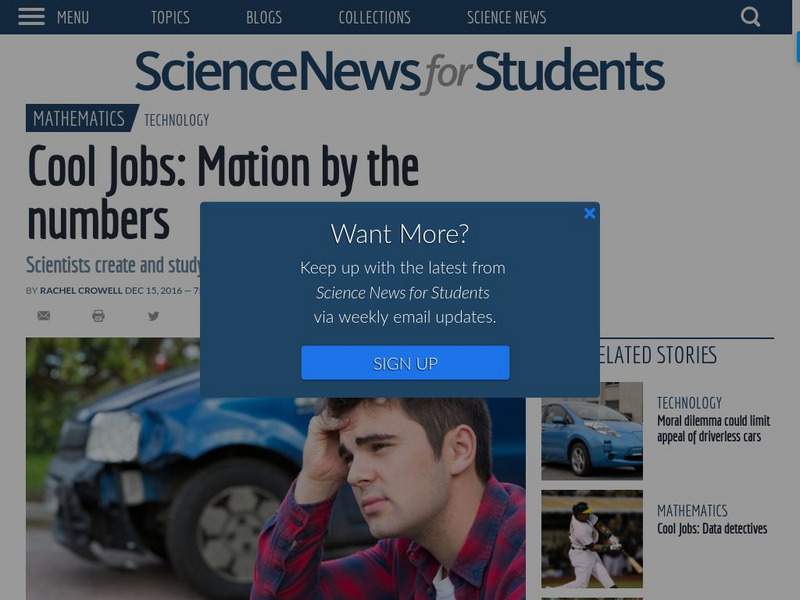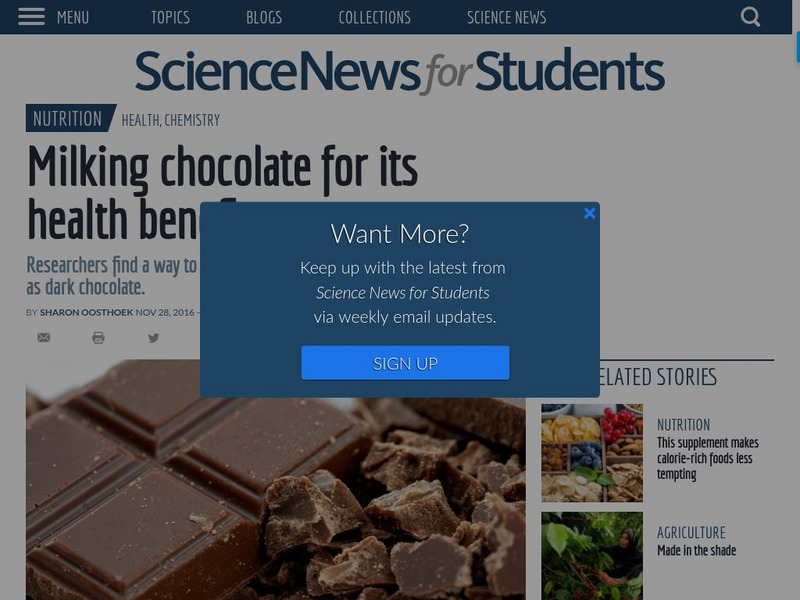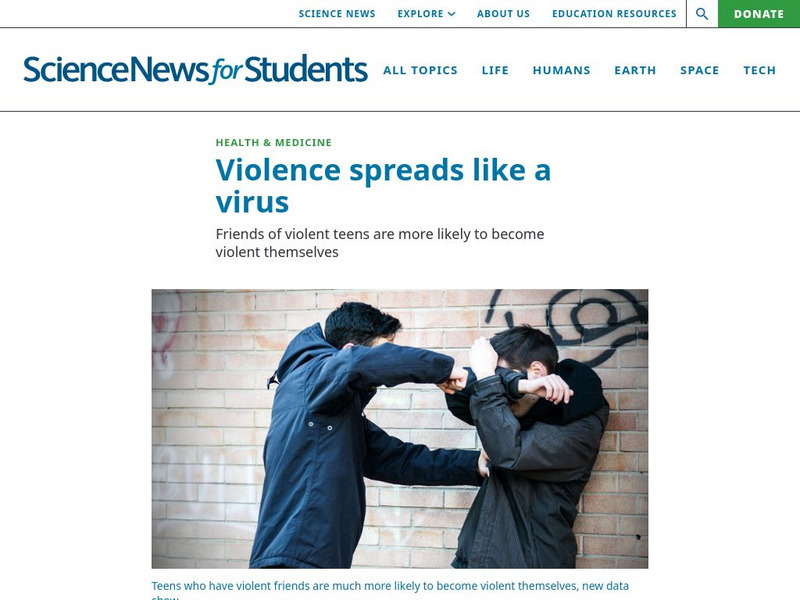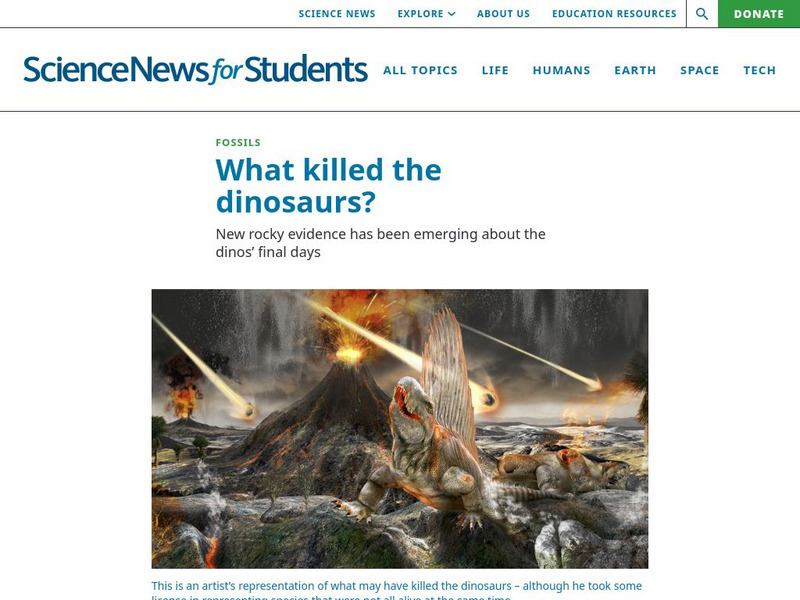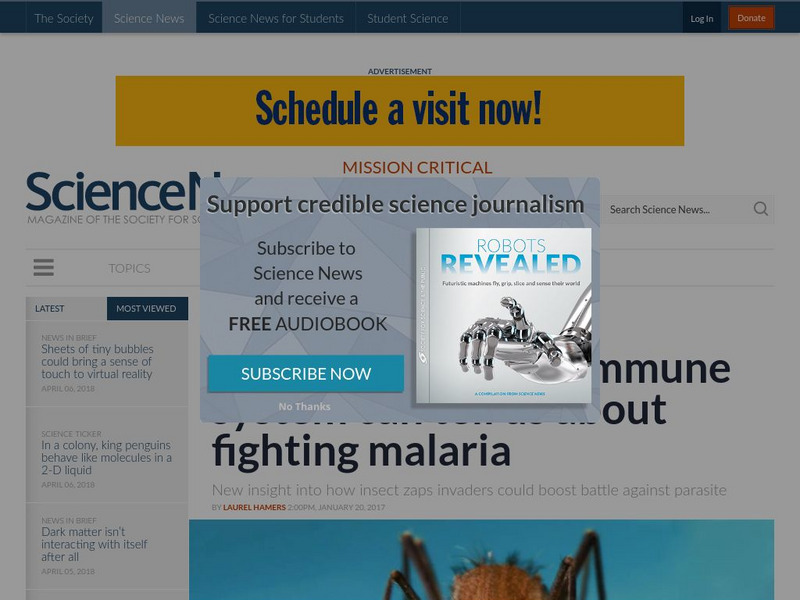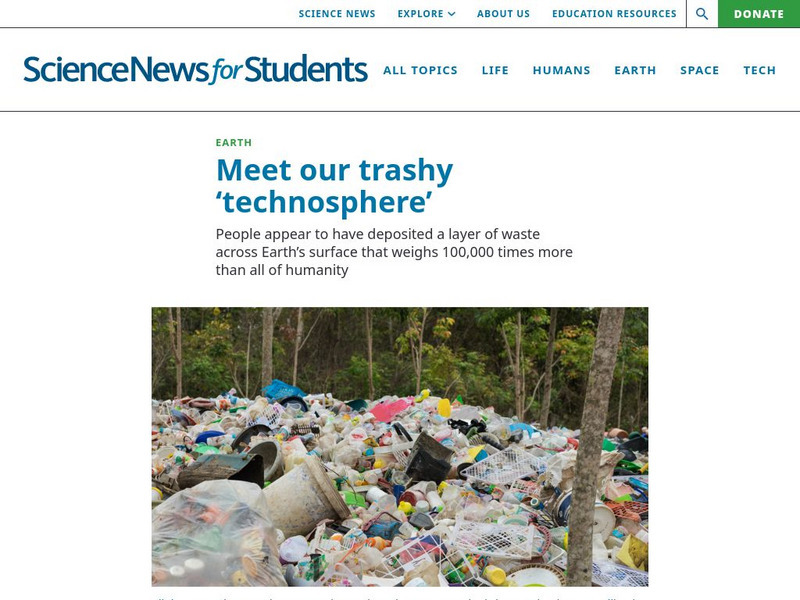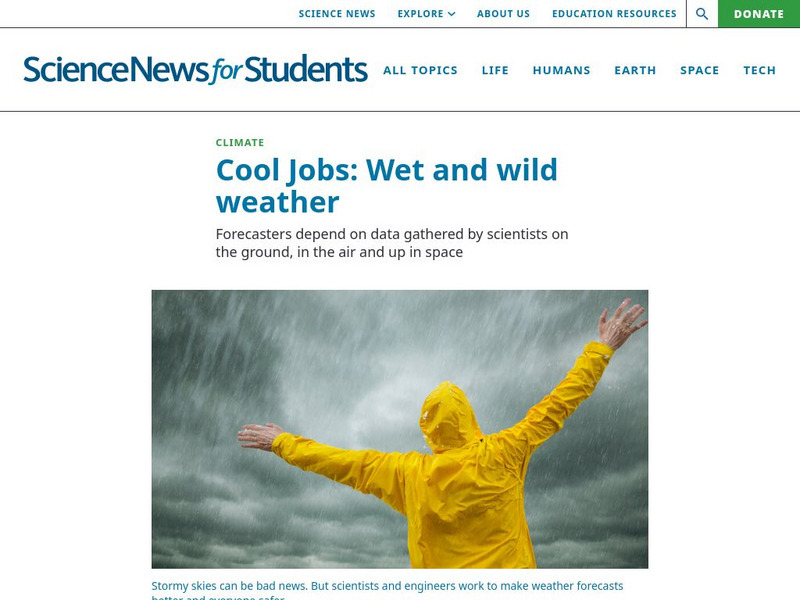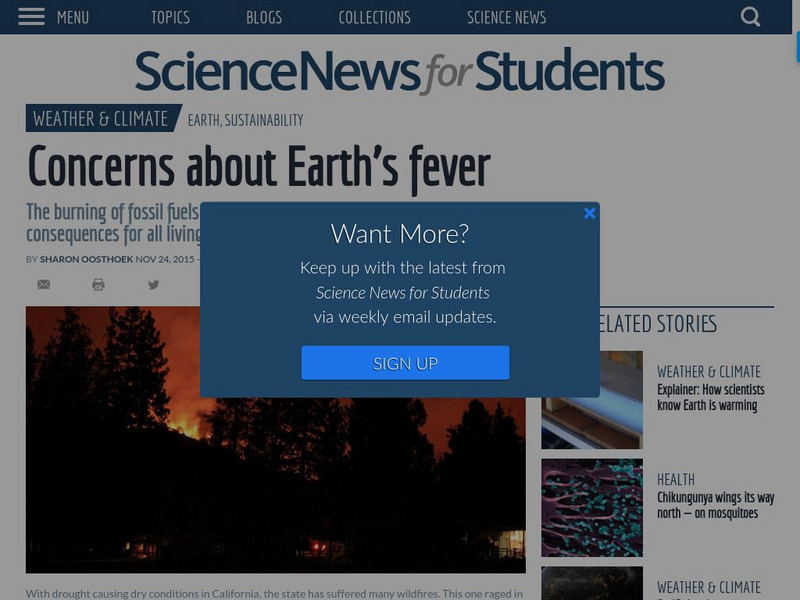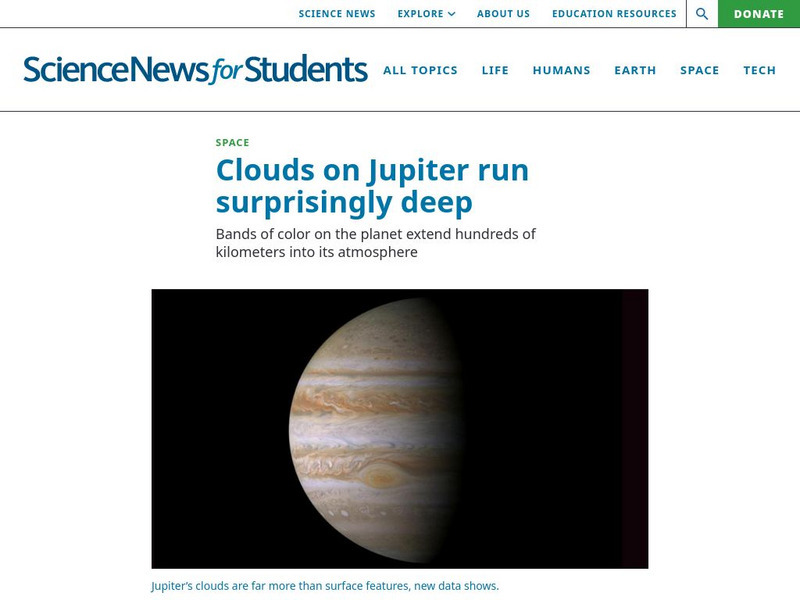Society for Science and the Public
Science News for Students
Read articles from Science News for Students, including articles from the current issue.
Society for Science and the Public
Science News for Students: Ocean Animals Have Mushroomed in Size
Article reports on the increasing size of ocean animals over the millenia. Includes a list of key vocabulary.
Society for Science and the Public
Science News for Students: Peanut for Baby: A Way to Avoid Allergy?
Article reports on a recent study that found that babies that are exposed to peanuts are less likely to develop peanut allergies. Includes a list of key vocabulary.
Society for Science and the Public
Science News for Students: The Steady Creep of Less Sleep
Article reports on the decreasing amounts of sleep being had by teens and tweens and its effects. Includes a list of key vocabulary.
Society for Science and the Public
Science News for Students: Cool Jobs: Motion by the Numbers
What do car crash testers, video game creators, and scientists who study athletic performance have in common? All use geometry in their cool jobs. Check it out.
Society for Science and the Public
Science News for Students: 'Ringing' in the Ears May Signal Serious Ear Damage
Often waking up after a concert our ears are buzzing. A persistent ringing in the ears, also known as tinnitus, has become common in teens - and may point to eventual, permanent hearing loss.
Society for Science and the Public
Science News for Students: Food Like Smell on Plastic May Lure Seabirds to Eat
When plastic smells like supper, seabirds and other animals can be fooled into thinking it is food. Take a look at this investigation.
Society for Science and the Public
Science News for Students: World's Tallest Corn Towers Nearly 14 Meters
Short nights and a genetic tweak helped novel corn reach record heights in upstate New York. Check out the skyscraping stalks.
Society for Science and the Public
Science News for Students: Water Sensor Quickly Detects Algal Poison
A new sensor can detect poisons from harmful algae within minutes so that drinking-water plants can start timely treatments.
Society for Science and the Public
Science News for Students: Milking Chocolate for Its Health Benefits
Scientists are examining ways to make milk chocolate as beneficial for us as dark chocolate is.
Society for Science and the Public
Science News for Students: 'Print' Almost Anything
3-D printers are tools which allow people to design and "print" just about anything imagined. This newer technology is still evolving and developers find ways to utilize the printers for many purposes.
Society for Science and the Public
Science News for Students: 3 D Printers Offer Better Way to Make Some Magnets
Oak Ridge National Laboratory in Tennessee has been working on a way to cut back expenses on powerful magnets used in various objects we use every day like computers and cars. Science News for Students probes into the investigation's...
Society for Science and the Public
Science News for Students: Violence Spreads Like a Virus
New research shows that the friends of violent teens are much more likely to become violent themselves. Discover news about this human behavior spreading amongst teens.
Society for Science and the Public
Science News for Students: What Killed the Dinosaurs?
Researchers are beginning to find data implicating that an asteroid impact and supervolcanoes might have been the beginning of the end of dinosaurs on Earth.
Other
What a Mosquito's Immune System Can Tell Us About Fighting Malaria
Scientists are studying how mosquitos are able to fight off the parasites that humans seem to be unable to battle. Research is being done to help understand what slows or stops these parasites in the mosquito to protect them in an effort...
Society for Science and the Public
Science News for Students: Meet Our Trashy 'Technosphere'
People are creating a layer of debris and disturbance called the technosphere. A new study estimates just how truly massive it is.
Society for Science and the Public
Science News for Students: The Newest Elements Finally Have Names
Nihonium? Tennessine? These aren't body parts or medicines. They're among the names just given to the four newest superheavy elements.
Society for Science and the Public
Science News for Students: Cool Jobs: Wet and Wild Weather
How's the weather? Forecasts rely on scientists and engineers who collect and interpret data gathered on the ground, in the sky and way up in space.
Society for Science and the Public
Science News for Students: Concerns About Earth's Fever
Burning fossil fuels is causing the planet to heat up, causing weather patterns to change, sea levels to rise and diseases to spread. Scientists are concerned with the rising temps of Earth.
Society for Science and the Public
Science News for Students: Carbon Dioxide Levels Rise Fast and High
The buildup of carbon dioxide in the atmosphere is rising faster than at any time since dinosaurs roamed the Earth. The burning of fossil fuels is largely to blame.
Society for Science and the Public
Science News for Students: Cool Jobs: Linking Animal Health to Human Health
Scientists who watch out for diseases in wild animals also can play a role in keeping people from getting sick. Check out this Cool Job.
Society for Science and the Public
Science News for Students: Peacock Spider's Radiant Rump Comes From Teeny Tiny Structures
Male peacock spiders have highly colored hind ends that they shake to attract females. Scientists have now figured out the physics responsible for those hues.
Society for Science and the Public
Science News for Students: Clouds on Jupiter Run Surprisingly Deep
Scientists have recently observed a unique feature of the clouds on Jupiter. Find out what they've discovered.
Society for Science and the Public
Science News for Students: Earth Breaks Heat Record for Third Year Straight
Climate change and heat from a strong El Nino played roles in making 2016 the hottest year on record. Understand the specific impacts of climate change.






